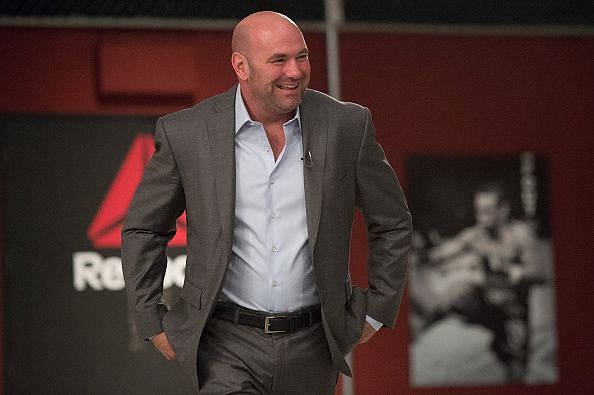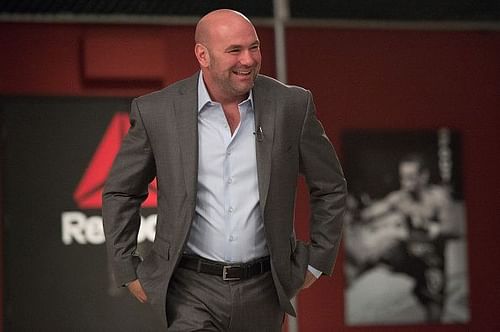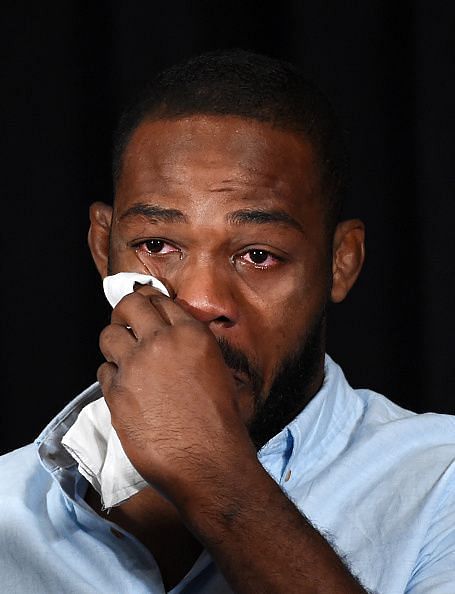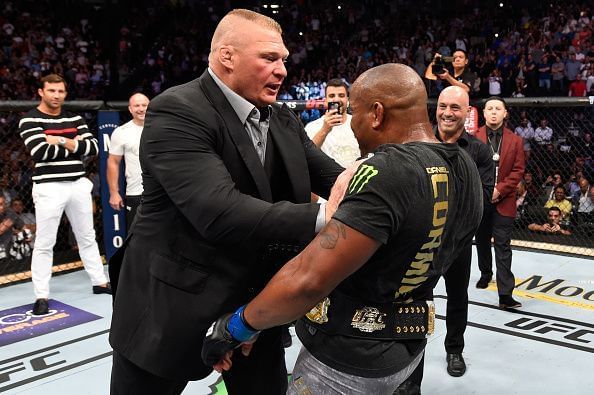
PEDs: Where exactly does the UFC stand on the issue?

Another weekend, another certified PED-user flying the flag for the Ultimate Fighting Championship.
After Brock Lesnar stormed the cage and stole the show in the aftermath of Daniel Cormier’s historic heavyweight-title win last weekend, Junior dos Santos scored a decision victory in the UFC Boise main event on Saturday to ensure the headlines were once again dominated by a fighter with the indelible stain of a failed drug test on his record.
Before we go any further, though, it’s important to give the UFC the credit it deserves. USADA certainly hasn’t come cheap. The cost to hire the company – which the organisation has commissioned to carry out Olympic-style testing on its fighters since 2015 – is said to be astronomical.
For the most part, the use of USADA by the UFC has been a roaring success. Since the anti-doping company undertook testing duties three years ago, a slew of fighters who once may have flown under the radar have been banned following the discovery of performance-enhancing substances in their system, meaning the UFC’s roster is now undoubtedly the cleanest in the sport.
Top contenders, including Pound-for-Pound poster boy Jon Jones, have seen their cheating publically and emphatically exposed, and with USADA’s stringent testing now looming overhead, the path that was once so tempting for unscrupulous fighters to take has suddenly lost its appeal.

But with another card this past weekend headlined by a fighter who was flagged for a PED violation in none other than his last fight, exactly what message is the promotion trying to send?
On one hand, the UFC is, quite admirably, taking fighters such as Jones to the cleaners. The former light-heavyweight champion popped for anabolic steroids for a second time last year following his rematch with Daniel Cormier and, 12 months on, Jones’ future is still very much up in the air, with the consensus greatest-of-all-time unlikely to be allowed in the cage again any time soon.
In hiring the services of a company that would later expose Jones, the UFC effectively eliminated one of its golden geese from competition, which certainly deserves praise. When the Las Vegas-based promotion decided to go ahead with the USADA deal, the potential loss of high-profile fighters was viewed as an unfortunate necessity if the quest to clean up the ranks was to be successful.
However, they probably didn’t envisage losing one of their main assets - not once but twice - to steroid violations, and the embarrassment caused by the situation actually highlights how brave the move to hire USADA really was.
Yet, at the same time, Brock Lesnar – a man whose last appearance in the Octagon resulted in a victory over Mark Hunt being overturned due to a failed drug test – was last week allowed to waltz back into the heavyweight title picture, skip the (albeit small) queue of contenders, and land himself a title shot in what will be his first fight back, just because… well, just because he’s Brock Lesnar.
Forget the PED violation; forget the fact that making him the next contender for the heavyweight title totally contradicts your supposed stance on performance-enhancing drugs - the guy sells PPVs!

All of this begs one rather important question: what’s more important to the UFC, sending out a message that cheating won’t be tolerated no matter who you are, or pulling in a few hundred thousand more PPV buys?
Because it seems awfully contradictory to allow Lesnar to jump straight into title contention on the back of a doping offence just because he sells fights. So does Jones - maybe not as many as Lesnar did in his heyday, but what exactly is the UFC’s position on PED-use here?
The rewards on offer for fighters coming back from suspensions are baffling. The whole point of hiring USADA was to unearth cheating and deter fighters from doping with the threat of a lengthy ban.
However, when some who are caught-out are banned from competition for just a year – bearing in mind some may only compete once or twice in that period anyway – and they’re then rewarded with a headline slot in their comeback fight, as Dos Santos was last weekend, suddenly the deterrent doesn’t seem so strong after all.
Dos Santos argued that the illegal substance found in his system arrived there via a “tainted supplement’, which is the excuse practically all fighters defer to when they flag for a PED violation.
Occasionally, some supplements are manufactured in the same factories as steroids and other PEDs, and in rare circumstances, cross-contamination can occur. Nevertheless, there’s no doubt that in most cases fighters are simply using this excuse as a way to legitimise their cheating in order to save face with fans and sponsors.
Further down card on Saturday night was Chad Mendes, who marked his return from a PED-related suspension with a TKO victory over Myles Jury. “I’m back” the former title-challenger screamed down the microphone in his post-fight interview. Judging by his excellent performance and the possibility of another run at the featherweight title, no doubt the UFC will welcome him with open arms.